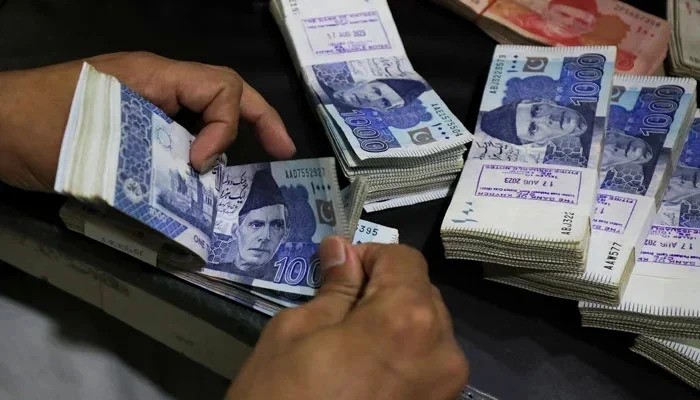
President Asif Ali Zardari has constituted the National Finance Commission (NFC) to address financial disputes between the federation and provinces. The new 11th NFC, notified by the Finance Division on Friday, dissolves the 10th commission formed in 2020 and sets new terms of reference to guide fiscal relations in the years ahead.
Commission formed with nine members
The Finance Division confirmed that the Federal Minister for Finance will chair the nine-member body. Finance ministers of Punjab, Sindh, Khyber Pakhtunkhwa, and Balochistan will serve as ex-officio members.
Each province has also nominated one expert to the commission. Punjab nominated former bureaucrat Nasir Mahmood Khosa. Sindh chose economist Dr Asad Sayeed. Khyber Pakhtunkhwa selected governance expert Dr Musharraf Rasool Cyan, while Balochistan nominated Farman Ullah.
Together, these experts and officials will shape recommendations for the president on financial distribution and cooperative fiscal management.
Mandate of the new NFC
The 11th NFC has been tasked with reviewing the distribution of federally collected taxes, provincial grants, and borrowing powers. Its role will be to suggest a fair mechanism that balances national priorities with provincial autonomy.
The notification stated that the commission will also consider financial arrangements for national projects, trans-provincial matters, and any fiscal issue referred by the president. By expanding its scope, the government aims to prevent disputes and ensure equitable sharing of resources.
Read: Gold price in Pakistan surges amid global market rally
Key terms of reference
The Finance Division outlined seven terms of reference (ToRs) for the commission. These cover a wide range of fiscal responsibilities and clarify the framework for recommendations.
First, the NFC will examine the distribution between federation and provinces of taxes listed in Article 160(3) of the Constitution. Second, it will assess grants-in-aid by the federal government to the provinces. Third, it will review borrowing powers of both federal and provincial governments.
In addition, the commission will deliberate on financial expenses incurred by the federation on matters that fall under provincial domains. It will also evaluate cost-sharing for projects and programs that span multiple provinces. National projects requiring both federal and provincial contributions will form another area of focus. Finally, the commission will address any other financial matter referred by the president.
Importance of the NFC
The National Finance Commission plays a central role in Pakistan’s federal system. By defining how tax revenues are divided and responsibilities shared, it ensures a balance between the center and provinces. Without regular NFC awards, fiscal imbalances can emerge, straining federal-provincial relations.
The formation of the 11th NFC reflects the government’s intent to update financial rules in light of changing economic conditions. Provinces often demand a greater share of resources, citing their service delivery responsibilities. The federation, on the other hand, emphasizes national security, debt servicing, and macroeconomic stability. The commission must reconcile these competing claims.
Challenges ahead
Crafting consensus will not be easy. Past NFCs faced deadlocks over revenue distribution formulas and cost-sharing for national projects. The 7th NFC Award in 2009, considered historic, increased the provincial share of divisible pool taxes from 47.5% to 57.5%. However, subsequent commissions struggled to build on that consensus.
The 10th NFC, formed in 2020, could not deliver a new award due to political disputes and economic shocks, including the pandemic. The dissolution of that body highlights the urgency of restarting the process.
Balancing federal and provincial needs
The 11th NFC now carries the responsibility of addressing both federal fiscal constraints and provincial demands for autonomy. Rising expenditures on defense, debt repayments, and energy subsidies limit federal flexibility. Provinces, meanwhile, face growing needs for education, healthcare, and infrastructure.
Experts argue that without reforms in revenue generation, borrowing, and expenditure efficiency, the NFC alone cannot resolve Pakistan’s fiscal imbalance. However, its recommendations will provide a framework for managing resources more transparently.
A test of cooperative federalism
The new commission will serve as a test of Pakistan’s federal spirit. By bringing together provincial ministers and experts, it creates a platform for dialogue on equitable fiscal management. If successful, the 11th NFC could strengthen trust between the center and provinces, paving the way for more sustainable financial governance.
The National Finance Commission thus remains not just a legal requirement but also a political instrument for unity. Its success will depend on compromise, foresight, and the ability to balance immediate fiscal pressures with long-term economic stability.
Follow us on Instagram, YouTube, Facebook,, X and TikTok for latest updates
